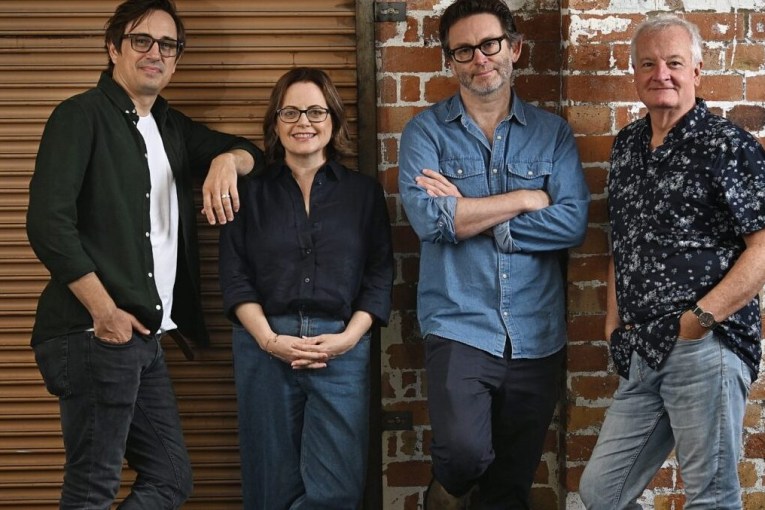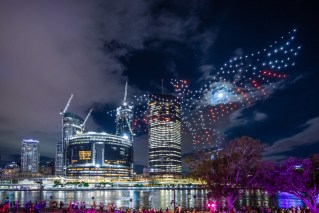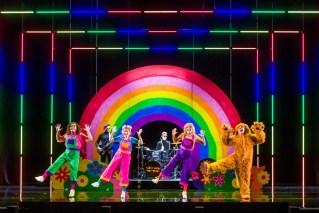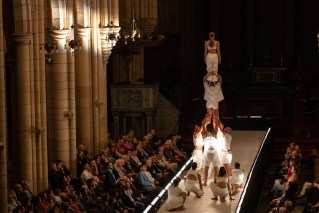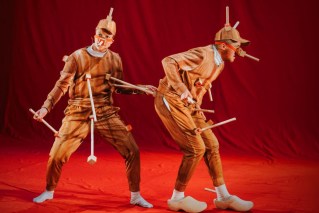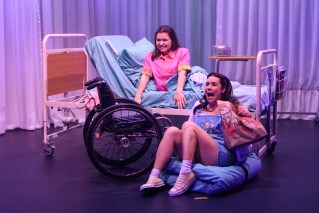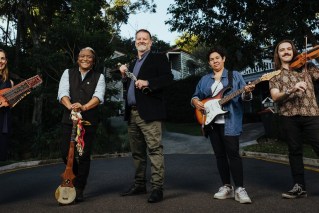Daniel Riley honours the past in a poignant ode to Country
Choreographer Daniel Riley interrogates family history in a moving and important work demonstrating the transformative power of truth telling, writes Cameron Pegg
You can’t walk on Country without leaving a trace.
That is a fundamental truth anchoring Tracker – choreographer Daniel Riley’s exploration of his own history and the life of his great-great uncle, Wiradjuri Elder and tracker Alec Riley.
The audience enters to find a ceremonial space demarcated on the stage. A beautiful river scene, painted on fabric and falling from a circular rig, shields part of the audience (or so we think).
Ari Maza Long plays a young man about to become a father. He is the descendent of Alec Riley, and seeks communion with the legendary tracker, and the lands and waters he knew so intimately. Long carries filing boxes filled with descriptions of the cases Alec Riley cracked during 40 years of service with the New South Wales Police Force. As Long reads the notes of each assignment, the scene materialises before us, and we are shown Riley’s perspective.
Dancers Tyrel Dulvarie, Rika Hamaguchi, and Kaine Sultan-Babij weave wordlessly in and out of each scene, morphing into people, places, and spirits. At times, they seem to be reflecting Alec Riley’s inner world – the conflict and trauma experienced while carrying out his work.
So often with contemporary dance are we offered a bespoke, electronic score that does not truly connect with the movement (and vice-versa). In Tracker, Daniel Riley’s choreography finds the echoes and eddies in the driving, elemental soundscape composed by James Henry and Gary Watling.
Watling mixes the music live on stage, and is an essential presence throughout. (One small issue on opening night – the sound mix was unbalanced early, making it difficult to hear some of the dialogue).
The dancers execute Daniel Riley’s movements with a lightness and surefootedness, coming and going as ripples and waves. In a chilling scene, lit in red, the dancers’ hooded bodies seem to congeal as one, as we hear the account of murder victims reduced to ash. Another moving account sees Hamaguchi scooped up in the tracker’s arms, as he makes a tragic discovery along the river’s edge.
With a sweep of the dancers’ arms, Jonathan Jones’s ingenious scenic design shifts, and so does our perspective and focus, aided by Chloë Ogilvie’s perceptive, understated lighting.
What is striking about Tracker is its deft, gentle treatment of the real stories it is entrusted with. Long’s character does not shy away from discussing the intergenerational trauma that he and his son must face. But we also see Alec Riley’s dignity and resolve, to live and raise his family on Country, on his own terms. Through Tracker, we witness the transformative power of truth telling, and the reconciliation it can enable.
Tracker plays at Brisbane Powerhouse until September 23.
brisbanefestival.com.au
This article is republished from InReview under a Creative Commons licence. Read the original article.
InReview is an open access, non-profit arts and culture journalism project. Readers can support our work with a donation. Subscribe to InReview’s free weekly newsletter here.
